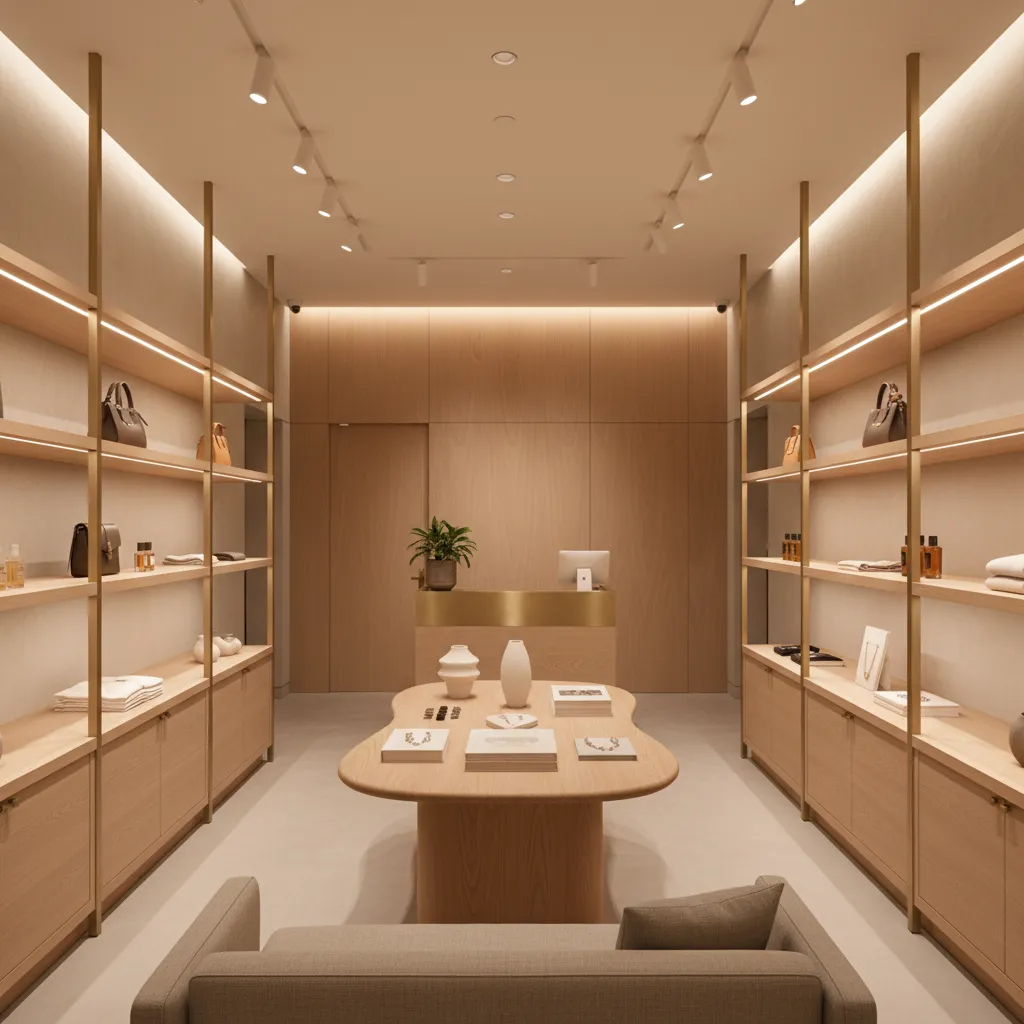Case Study: Boutique Retail Interior

We transformed a compact boutique into a warm, sales-forward environment by combining layered lighting, a tight material palette, and rapid optioneering. This case study documents the brief, constraints, workflow, prompt recipe, benchmarks, and lessons.
- Nine options in under ten minutes for comparative review.
- Material palette: pale oak, brass accents, linen upholstery.
- Camera presets for eye-level vignettes.
Project Brief
A 60–80 m² boutique required a warm, premium feel that highlights merchandise without glare. The client wanted quick visual options for approvals and social previews.
- Goal: inviting, high-margin ambience with clear sightlines.
- Audience: walk-in street retail; social-media-savvy shoppers.
- Deliverables: 6–10 variations, hero angles for marketing, final set for sign-off.
Site & Design Constraints
- Footprint: compact floor area; maintain circulation loop.
- Lighting: no harsh hotspots on product; preserve CRI & mood.
- Palette: pale oak, brushed brass, soft textiles; avoid visual noise.
- Camera: eye-level vignettes at 28–35 mm, minimal distortion.
Workflow Overview
- Inputs: rough layout & display logic (front focus, mid feature, rear fitting).
- Base style: minimalist retail with warm oak, brass detailing, linen textures.
- Lighting passes: ambient base → accents on shelving → soft key near POS.
- Camera passes: entrance hero, product bay, POS vignette.
- Batch options: 6–10 quick variants (warm/cool/spotlight mixes).
- Refinement: reduce glare, soften shadows, nudge focal hierarchy.
- Export: high-res JPG/PNG for review and social previews.
Prompt Recipe (Reproducible)
Use this as a single prompt to regenerate the showcased ambience:
photoreal boutique retail interior, warm layered lighting (soft ambient + shelf accent + subtle spot), pale oak millwork, brass hardware, linen upholstery, neutral plaster walls, eye-level camera 32mm, balanced composition, no harsh glare, clean sightlines, premium editorial look, high detail, 16:9, print-ready
Optional negatives: no harsh reflections, no blown highlights, no crowding, no watermark, no logos.
Benchmarks & Outcomes
- Time-to-first-render: ~30–40 seconds (typical).
- Option set size: 9 variants in < 10 minutes (entrance hero + bay + POS).
- Review quality: consistent camera & lighting labels improve client feedback.
- Export: high-res PNG for marketing; JPG for fast sharing.
Lessons Learned & Limitations
- Keep material palette tight; too many finishes dilute the focal hierarchy.
- Label lighting presets by name (e.g., warm-oak-ambient-v2) to compare apples to apples.
- Highly reflective brass needs gentle key light—avoid direct hotspots.
- For dimensionally exact deliverables, trace or model downstream; this stage is for visual intent.
Changelog
- 2025-09-25 — Added benchmark metrics and prompt recipe.
- 2025-09-10 — Initial case study draft and hero image.